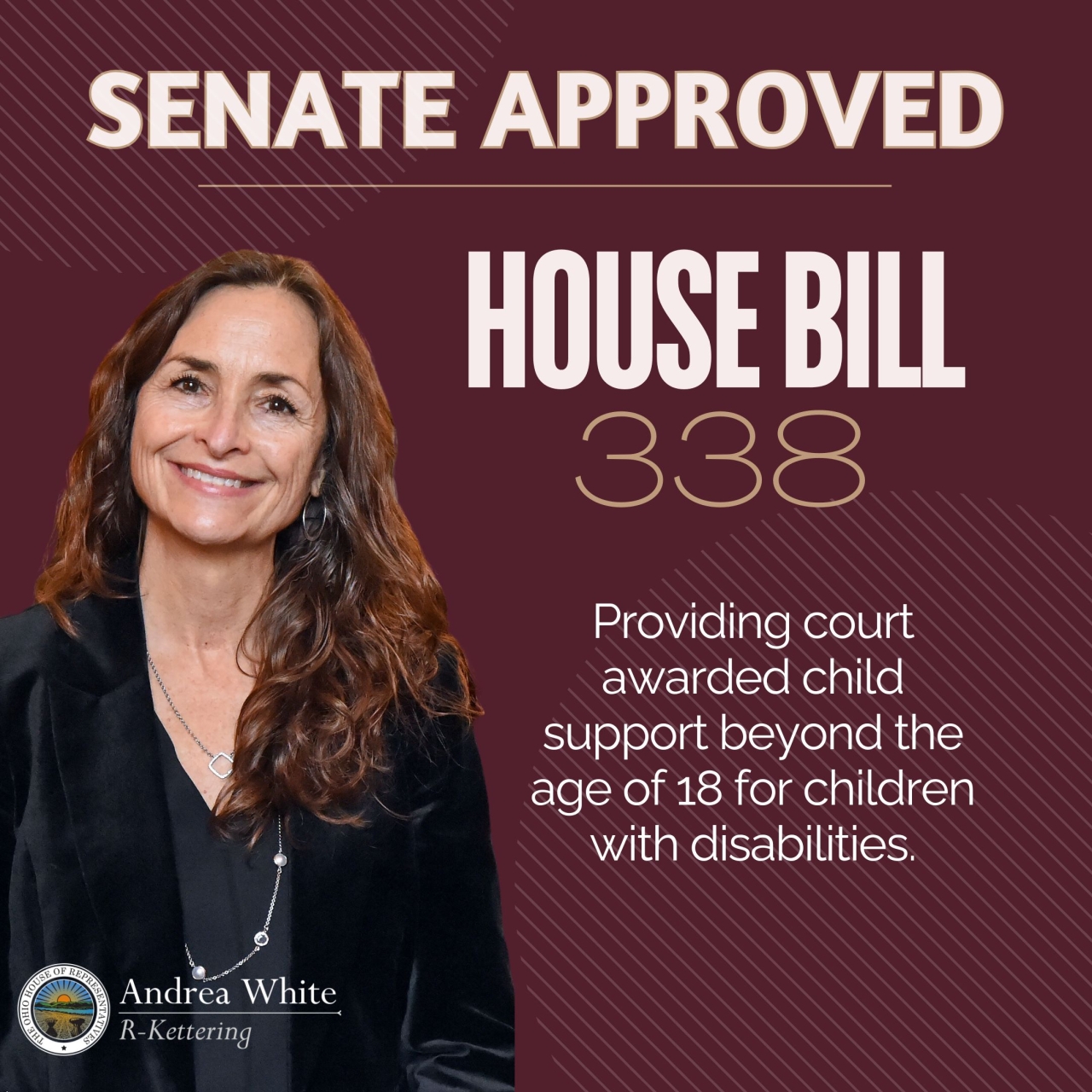White's Bi-Partisan Legislation on Child Support for Children with Disabilities Receives Unanimous Support from Senate

COLUMBUS – State Representatives Andrea White (R-Kettering) and Bride Rose Sweeney (D-Westlake) have successfully passed their legislation that will help ensure consistency around the state for how courts award child support in divorce cases for children with disabilities through the Ohio General Assembly after the Senate unanimously voted in support for the bill Wednesday.
For families who have children who have such disabling conditions, the need for financial support is ongoing. Current Ohio law and Supreme Court ruling Castle v. Castle are clear that family courts can award child support that continues beyond the age of 18 when the child’s parents divorce prior to the child reaching adulthood. However, there have been inconsistent rulings in courts throughout the state on the first-time award of child support for a person with a disability who is unable to care for themselves if they are over 18 at the time of their parents’ divorce.
“Ohio families and some of our most vulnerable citizens are being negatively impacted through inconsistent decisions by family courts,” said White. “This legislation will ensure that no matter where you live in Ohio or the timing of your parents’ divorce, your parent will have the ability to ask a judge to consider awarding child support if you have a disabling condition that prevents you from being able to provide for yourself. We need consistency and fairness in the way family courts are approaching these situations to ensure equal treatment across the state.”
HB 338 clarifies any confusion in the law by codifying the definition of child support to include adults with a mental or physical disability, whose disability began before 18 and who are incapable of supporting or maintaining themselves after entering adulthood – regardless of the timing of their parents’ divorce. The legislation will allow for both first-time support awards as well as modifications in the event support is no longer needed at the same levels or at all. The bill does not change anything about how child support is calculated or determined, with support decisions remaining at the discretion of the judge.
The legislation will now await the Governor’s signature to become enacted into law.







